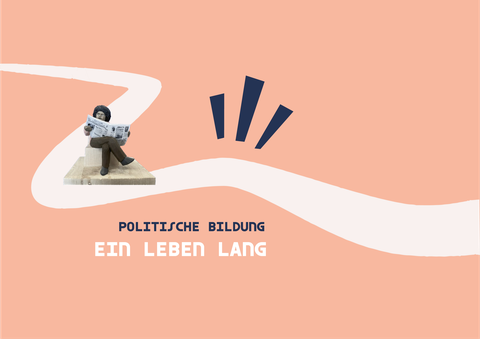May 11, 2023
#66 Lifelines
Today's idea is about a practical exercise for reflecting on your own political education biography. It is inspired by the lifeline exercise from systemic counseling. All you need for this is enough free space on the floor and various small objects - but more on that later.
On page 140 of our logbook "Politische Bildung" there is a small reflection exercise in which you can draw important moments, impulses or events from your own political education biography along a path. The central question for reflection is: What did I know about politics and when? While this reflection activity is particularly suitable for thinking about your own educational biography on your own, our idea today is particularly suitable for use in political education activities with groups.
The idea is to use various objects (such as colorful stones, picture cards, woolen threads, game pieces, wooden blocks, etc.) to make your own political education biography visible and thus reflectable. It makes sense to have small cards ready on which the last decades are noted. You can use these to prepare a kind of "playing field" within which the participants can use the objects to mark important stages or events in their educational biography.
The visualization not only creates a structure for their own narrative, but also for formative collective events. These can be placed on the life line using additional symbols or labels. Common experiences can thus become visible, but also the different individual ways of dealing with them. People can get to know each other in a different way. It is always up to each person to decide what and how much they want to say. Such a visualization can also be expanded for future decades in order to make possible expectations, wishes or fears visible.
In this way, political educators in particular can provide a stimulating framework for their professional reflection or a collegial exchange. It would also be interesting for them to ask how their own biography has influenced their political didactic work and possibly shaped (subconscious) attitudes towards certain formats, content approaches or target groups. However, this method can also be an interesting starting point for entire (village) communities to enter into an exchange with each other and to work together on the interweaving of personal life events with collective events (such as political upheavals, major disasters such as floods, successful infrastructure projects, the restoration of monuments or major festivals).

